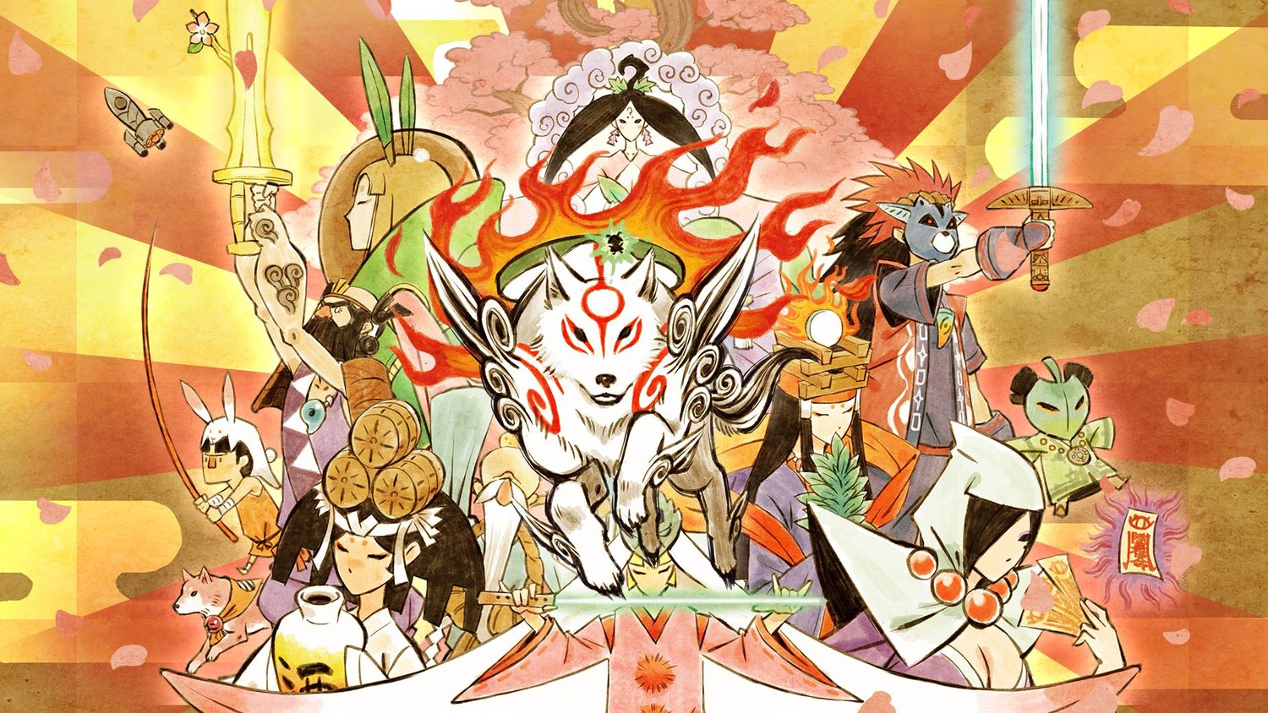
 |
JPN 221 |
|
T • Th 11:30-12:45 |
Jeremy Robinson |
||||||||||||||
"Ah, Amaterasu! Origin of all that is good and mother to us all!" |
||||||||||||||||
The version of premodern Japan depicted in the 2006 video game Ôkami may be fictional, but it draws on a wealth of real Japanese artistic, literary, mythological, and historical sources. This class immerses students in this setting, reading the real Japanese classics on which the game is based as we play through the HD re-release of the game. We will explore both the role of the works in their original context as well as their reception by later generations of Japanese readers, ending with its incorporation into the fictional world of Ôkami. The focus of this course is pre-modern Japanese literature and culture. While Ôkami will provide the framing for our course, readings will include sources in literature, history, mythology, anthropology, art, philosophy, theater, religion, etc. Firmly rooted in the humanistic tradition, the class aims to explore both what we share and how we differ from those who lived so long ago and in such different circumstances, in an effort to explore the range of human experience. All readings will be in English translation and will focus heavily on primary sources. In other words, we will be reading more what the people themselves wrote rather than what others wrote about them, while the context provide by Ôkami will open the question of how these original sources have been and continue to be received and adapted by generations of later readers, viewers, and players. You will frequently be asked to engage with the texts on their own terms, without extensive background information, and to write about your reaction to them prior to having dealt with them in class. Your personal response to what you are reading is as important to making the class a success as is the “accepted” reading of any given work. It is expected that you will finish this class with a deeper understanding of premodern Japanese culture, but more importantly with a sense of the relevance of the themes explored to both modern Japan and to your own life. Student Learning Objectives: After successful completion of this course, students will be able to:
This course also fulfills the General Education "Philosophy and Literature" Foundation requirement and the "Global Perspectives" Cultures requirement. As such, it includes explicit focus on the following content and skills goals:
Both the Information Literacy and Oral Communication skills goals will be met through a research project, consisting of an oral report presented to the class and a bibliography. One of the easiest ways to find a topic is to choose one of the "Preview" sections marked on the syllabus. However, if there is another topic in which you are interested, please feel free to choose it to present at the appropriate time during the class. You will need to be proactive about making a decision, though, as it is recommended you sign up for a topic at least several weeks in advance to ensure you have time enough to prepare. The presentation should be approximately 10-15 minutes long, must use at least two secondary sources (with a bibliography sheet submitted to the instructor) and include visual aids in the form of a power point or other images. |
||||||||||||||||
|
|
|
|
|
Attendance/Participation |
25% |
|
There are no requred texts for this course. All readings are listed on the Course Schedule on Blackboard and will be made available on an external site called Perusall. Perusall is a site for collaborative reading, and as you do your readings you should make comments, ask questions, etc.You will see other students' questions/comments as well, and you are encouraged to actively engage, responding to their comments, answering their questions, etc. The intent is to create communal discussion about the readings prior to coming to class, and these online discussions will provide the basis for our in-class discussion. There is no required minimum number of comments you must make, but your activity on Perusall is tracked by the site and active engagement with the readings is the basis of your "Perusall Readings" grade. When a reading is listed on a given day on the Course Schedule, you should read/comment on it prior to that day and come to class ready to actively contribute to discussion. You will also need to post to Padlet if that is assigned for that day, and those posts will make up your Padlet grade. I do take attendance, but your participation grade relies on not just your presence but your active contribution in class. You will also be required to play the Ôkami video game as part of this class, but you will not need to purchase the game. The Language Resource Center has multiple games and PS4 and Switch devices that you are able to borrow for the duration of the semester. If you already have your own game system, copies in PS4, XBox, and Switch formats are also available to borrow. Videos of the entire playthrough have also been uploaded to Perusall, where you can comment on them in the same was as the readings, pointing out cultural aspects or connections with the class you notice during gameplay. We will play through the first arc (approximately one third) of the story and five times over this period you will be asked to write reflection papers connecting the game with the larger themes of the class.
|
Winter 2024 Course Schedule
• click on any section to go to the assignments for that week •
|
|
|
|
|
|